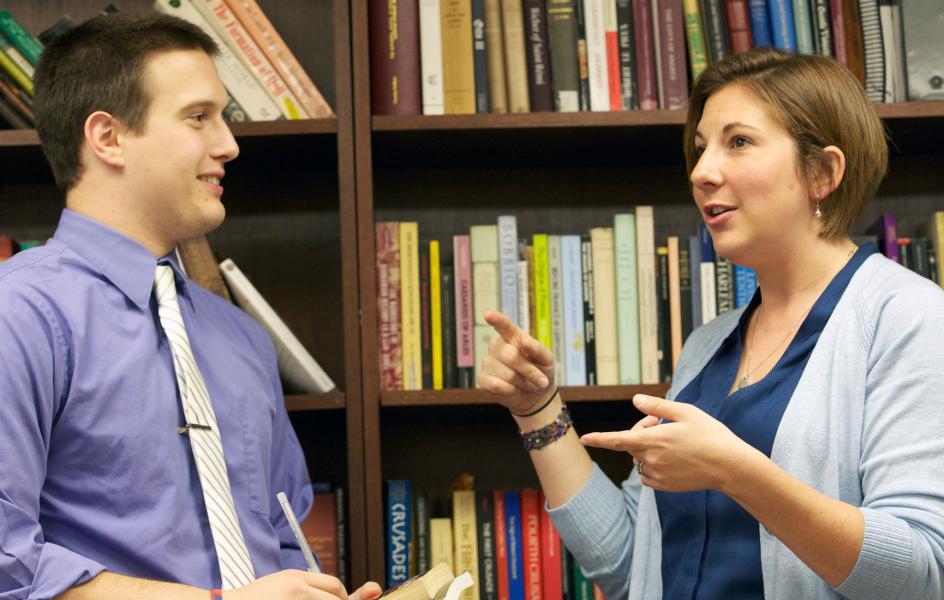
Courtney DeMayo
Chairperson, Department of History and Anthropology
Associate Professor of History
I always find it incredibly off-putting when I’m the voice of reason, but there is so much concern about how the sky is falling and it’s the end of liberal democracy as we know it. I understand that but I don’t think that we are seeing the whole picture. I think that there is a really important lesson to be taken from Buddhism in all of this, and the lesson is that anger is rooted in ignorance, like the inability to understand someone else’s perspective.
Politically, I am a left-wing nut job. My political crush is on Bernie Sanders, I love that elderly socialist. I just want to squeeze him. The thing that keeps standing out to me with everything that has happened in this election is that as a nation, we don’t talk to each other anymore. We have created our own echo chambers, where if you are a liberal, you only surround yourself with other liberals and Democrats. If you’re a Republican, you only surround yourself with Republicans or conservatives. Without communication between both sides, they are portrayed as stupid or evil, all of these different pejoratives that we use to describe people who disagree with us without actually taking a moment to try and understand the position that we’re in.
The thing that keeps punching me in the face with all of the stuff from the election is that there is a huge segment of the American population who feels like the American dream is dead for them. They feel left behind and left out of the system. There is desperation. In our little Heidelberg bubble, we aren’t as aware of those feelings. We don’t see that. There is an element of Islamophobia and homophobia and xenophobia that shows up in the rhetoric. I am not going to deny that. I find it deplorable. It runs counter to what I believe we are supposed to be as a nation. I also think that there are a lot of people who are just straight up hurting economically and that we have to figure out a way to create an economic and a political system that provides justice for all. Not just economic justice for those who can afford to go to college. Not just economic justice for those who are lucky enough to inherit loads of money. We have to really think about whether or not what we have been doing for the last 240 years is really cultivating a society that we want. Right now, it seems very clear to me that it is not the society we want it to be. We have to have a dialogue to figure out what that looks like and come to some sort of understanding. We all have to remember that in a representative governmental system, nobody gets their way all the time. We have to figure out how to move past that.
Courtney started at Heidelberg in 2010 and is an associate professor of history and the Chairperson for the Department of History and Anthropology. She is also co-chair of the Lichtman-Behm Genocide Lecture Series.
The thing I remembered the most from the first time I stepped on campus was that it felt weirdly familiar. Right away I understood this place. It felt incredibly welcoming.